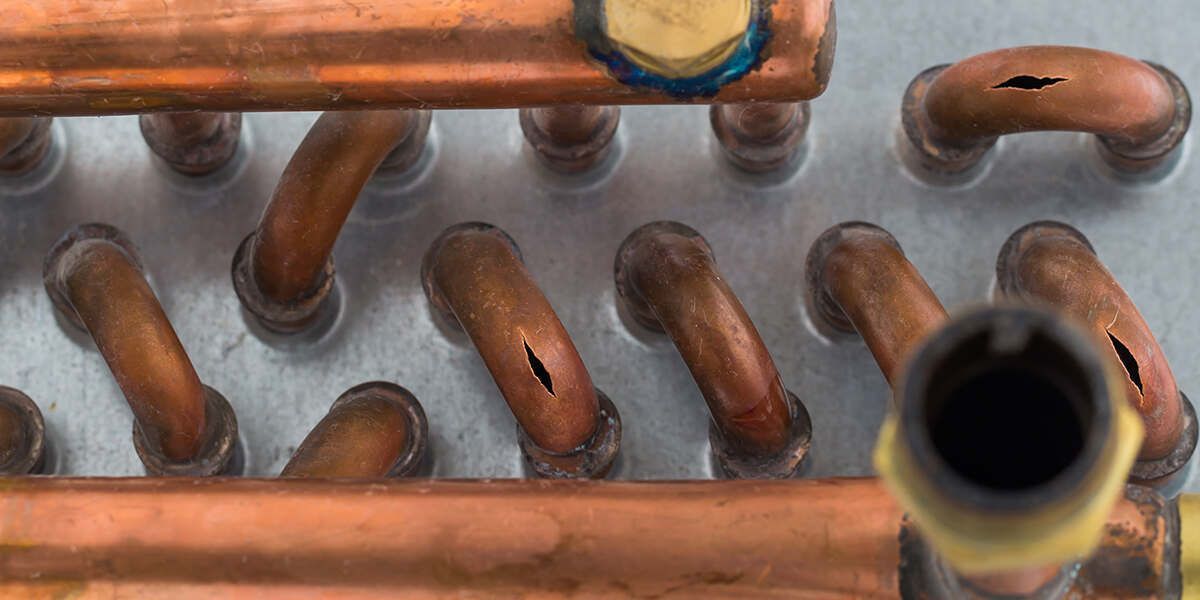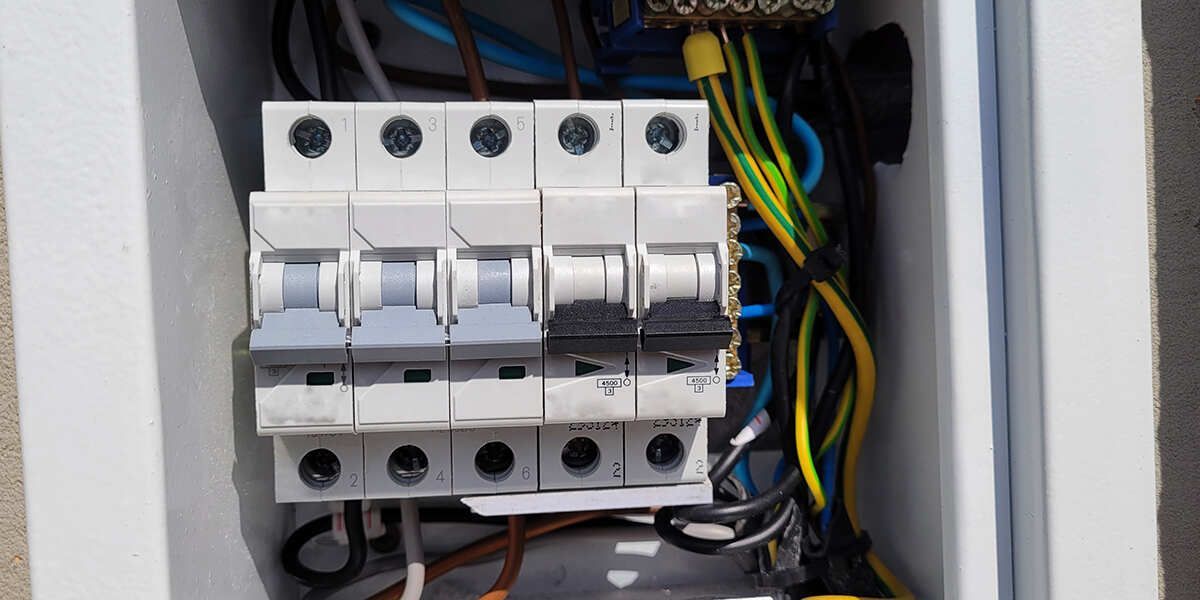CALL OUR EXPERTS - 24/7:
10 Reasons Why Your Generator Won’t Start
Top 10 reasons your emergency home generator won't start
During unpredictable Wisconsin winters, what do you do when your home loses power? Don’t sit in the dark and worry about your refrigerated food spoiling; depend on your generator to kick in and keep your heating and cooling systems going. But what if your generator won’t start?
When the engine of your generator won’t start, it’s frustrating, and facing extreme heat or cold without power is dangerous. Troubleshooting a broken generator is easy, though. Read on to learn about the most common reasons generators won’t start and what you can do to restore power to your home, including reasons why a generator runs but produces no power.
1. Fuel Tank Is Low
Your fuel should be the first thing you check. If your generator uses gasoline, check the fuel levels in the tank and add more fuel if the levels are low. For a propane-fueled generator, check the fuel level and ensure all the valves and tubing connecting the propane tank to the generator are open.
Regarding gasoline-powered generators, keep in mind that “stale” gasoline, any gas more than two months old, can damage the generator’s engine. Drain stale gasoline from the fuel tank and the carburetor, then fill the tank with fresh gasoline to prevent generator backfire.
2. Low Oil Levels in the Engine
Oil is vital to your generator’s engines. While most generators have a sensor to let you know when oil levels run low, it is still essential to check the oil levels with a dipstick. If you have low oil, refill with the right type of oil as directed by the manufacturer. This could be an excellent time to replace the oil filter to keep your generator in good condition and avoid costly breakdowns and emergency repairs.
3. Dead Battery
Just like your car, if your generator won’t start, it could be due to a dead battery or faulty connections. Try charging the battery via a 12-volt DC outlet or give it a jump courtesy of your car battery.
If that doesn’t work, then the battery is not likely the problem.
4. Cables Are Plugged into the Generator
When you try to start your generator, first check that nothing is plugged into it. Even if the cords plugged in have no appliances connected to them, unplug everything to isolate the reason your generator won’t start.
5. Adjust the Choke Control
The choke regulates the air levels within the carburetor when the engine starts up. If the motor cannot turn over, the amount of air mixing with the fuel may be the problem.
A cold engine should have the choke closed completely. Once the engine starts to warm up, you can adjust the choke to open fully. However, if the engine is still warm, the choke needs to be halfway open to restart the engine.
6. Clogged Air Filter
If adjusting the choke seems to help but doesn’t completely resolve the problem, it’s time to check the air filter as part of your routine generator maintenance. A clogged air filter can prevent the carburetor from getting the air needed for combustion. You can easily see the air filter, and if it looks dirty, replace it and move the choke back to closed.
7. Dirty Spark Plug
If you’ve reached this point and the engine still will not turn over, the spark plug may be dirty. Start by removing the spark plug from its socket. Replace your spark plug if:
- It is covered with dirt or debris that you cannot brush off
- There are any signs of broken electrodes or cracked
If you can remove the debris, clean the spark plug carefully and follow the generator owner’s manual to adjust the electrode gap. To check the spark plug, hold it against the engine’s crankcase and pull the generator’s recoil starter. If the spark plug is working, you will see blue sparks. Reinstall the spark plug and try starting the generator again.
8. Clogged Carburetor
You may have already drained the carburetor earlier when you checked for stale gasoline, but if not, now is the time to do it. Old gasoline forms a clog in the carburetor, preventing new fuel from getting through to initiate combustion.
To clean out your carburetor, start by closing the fuel valve. Remove the bowl at the bottom of the carburetor and use a brush or towels to clean out any debris. To remove clogs from a brass jet nozzle, insert a needle or straight pin. Once you’ve finished, turn the fuel valve back on before attempting to restart the generator.
9. Clogged Fuel Valve
If the carburetor is clogged, chances are the fuel valve is clogged as well. Check to ensure that the fuel and vacuum relief valves above the generator’s gas tank are open. If your generator still won’t start, unplug the fuel hose and check if gasoline can flow through the fuel line. Have a bucket handy to catch the fuel when you try this.
Also, check for clogs in the filter between the fuel valve and carburetor.
10. Oil Level Sensor Malfunctioning
The low oil sensor lets you know when your engine’s oil levels are too low. If the sensor malfunctions, however, you will not if the oil levels are low. Also, if you run your generator on an uneven surface, the oil level will be uneven, and the sensor may misread it as low.
Position your generator on an even surface. If the oil sensor still reads low, disconnect the sensor and try running the engine. If it starts, your oil sensor is at fault. Plugging it back in should reboot it, but if not, you will need to replace the sensor.
Generator Repair
If your generator won’t start after reviewing these common issues, or if you have any doubts about your ability to handle troubleshooting your generator, do not hesitate to search for “emergency generator repair services near me.”
At Professional Services, our skilled service technicians have the knowledge and experience to evaluate your generator and efficiently repair it. We can also help you choose a new generator if yours is beyond repair.
Learn more about generator repair on our website, or call Professional Services of Washington, WI, at (262) 214-5548 to schedule a consultation if your generator won’t start.
You might also like
Book a Service Today
We will get back to you as soon as possible
Please try again later
HVAC, Electrical, and Plumbing Services - Comprehensive Solutions You Can Trust
At Professional Services, we specialize in delivering top-notch HVAC, electrical, and plumbing services that keep your home running smoothly year-round. Whether you need a new furnace installed, electrical panel repair, or emergency plumbing, our team of certified technicians has the expertise and experience to handle any job with precision and care. We prioritize safety, efficiency, and customer satisfaction, ensuring every system in your home operates at its best. From AC repairs to fixing faulty wiring, count on us for reliable solutions that meet your specific needs. Contact us online to schedule an appointment or call (262) 218-2636.
SITE LINKS
Office Hours:
Mon-Fri: 7:00 AM - 4:00 PM
24 hour on call service available for
Emergencies only
Plumbing:
Doing Business As Hockers #230742MP
OUR SERVICES
All Rights Reserved | Professional Services












